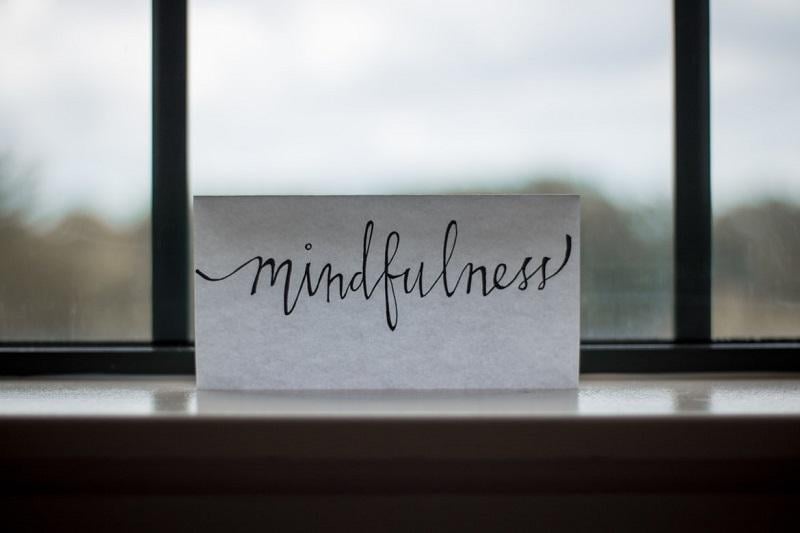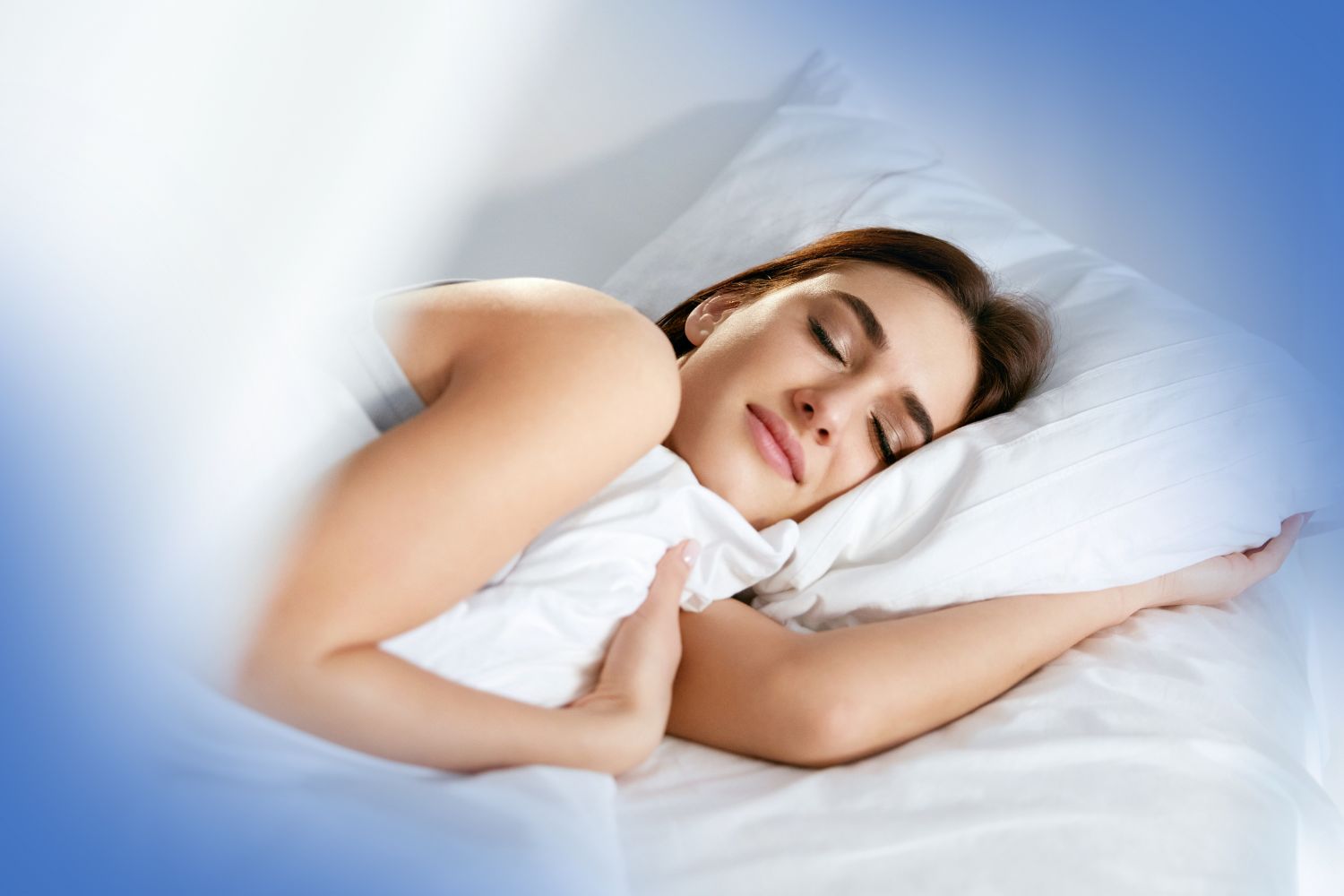
Sleep and the Immune System
If you’re not making sleep a priority, it will catch up with you—in fact, maybe it already has. Are you prone to catching colds? Is it harder to recover from infections, wounds, or other ailments? Sleep and the Immune System work together, and rely on each other, to keep your body strong and disease free.
Getting adequate sleep bolsters your immunity which helps you to get sick less often—and heal more quickly. A weak immune system makes you more susceptible to illnesses. This can hinder or prevent, sleep. Viewed this way, it’s easy to see that sleep and the immune system should be kept top-of-mind.
Prioritizing your Sleep
It's essential to maintain a fully functioning immune system; anything less deprives us of robust health. Bottom line, sleep loss—even in the short-term—can compromise immunity in the long-term.

Getting quality sleep should never be an afterthought...
Practice being mindful; keeping an intentional focus on sleep and the immune system is key. Neglecting sleep to deal with life's other urgencies is just a bad idea.
Making sure you get the right amount of uninterrupted sleep each night helps ready your immune system to respond and perform at its best. This should go hand-in-hand with managing your daytime habits—such as:
- Eating whole foods
- Regular Exercising
- Managing stress
And, as always, consider seeking expert and/or medical advice. Good or bad, everything we do has the potential to affect how well we sleep.
Ignoring your sleep won't result in good news...

Consequences
Consequences—they're inevitable and one of the primary rules of life. The consequences of poor health choices are guaranteed to be unpleasant. In extreme cases they may even be life-threatening.
Inaction—as well as action—can bring these consequences. If you aren't actively protecting your immune system — If you think it’s “good enough” to simply not put “bad things” into your body—or that it’s ok to skimp on your sleep to fit in other activities… think again…
What’s the worst that can happen?
An impaired immune system cannot mount a fully effective response to the lurking array of germs and diseases we're exposed to each day. When your system is weak, you are constantly open to attack from bacteria, viruses, parasites and other malicious invaders.
Compromised immunity may result in any number of annoying afflictions (frequent sniffles, allergies, earaches, stomach upset.) We often brush these seemingly minor bouts off as manageable—but they just keep coming back. As they repeatedly hammer away at our immune reserves, it takes longer to recover—the immune system continues to weaken— increasing our susceptibility to infectious disease and chronic illnesses.
How much sleep do you need?
Studies continue to support the link between Sleep and the Immune System. These findings tell us why sleep is critical for optimum immune function:
- We need 6-7 hours of sleep per night to help ward off infection.
- There is a greater risk of developing life-threatening conditions (including depression, diabetes, heart disease, inflammation and obesity) in subjects experiencing regular sleep loss.
The recommended number of sleep hours for adults is 7-9 hours depending on your age. That said, follow what your body tells you. How many hours do you need to feel rested and healthy?

Signs you may be sleep deprived…
- Daytime fatigue / Inability to concentrate
- Increased appetite / Weight gain
- Emotional outbursts / Impulsive behavior
- Clumsiness / Impaired decision-making
- Undereye circles / Skin blemishes
- Vision problems / Prone to illness
Your immunity may need a boost if you …
- Always feel tired
- Are highly anxious
- Catch cold easily
- Have constant digestive issues
- Get frequent infections
- Have slow-healing wounds
These lists are not dis-similar, which underscores that critical link between Sleep and the Immune System. Boost your sleep—boost your immune system. Boost your immune system—boost your sleep…
Boosting Immunity

Go for a walk—Fresh air, sunshine, exercise—all boostimmunity!
Support your Better-Immunity efforts by embracing additional immune-boosting lifestyle choices/changes. Working toward better sleep, is step one; be sure to follow it with regular moderate exercise. Keep yourself well-hydrated; work on managing your stress—and try to skip the sugars.
Want a Super-Boost? Support your wellness regimen by getting the vital nutrients you need through whole foods!
10 Foods that boost immunity
- Almonds –a great source of fiber, vitamin E, magnesium and manganese
- Apples –help regulate the immune system and allergic reactions
- Blueberries – high in antioxidants to support the respiratory system
- Broccoli –potent antioxidants and vitamin C
- Dark Chocolate – contains theobromine to protect from free radicals
- Fatty Fish – high in Omega 3’s to fight inflammation
- Garlic –a natural antibiotic and long accepted home remedy for colds
- Ginger – boasts anti-inflammatory and antioxidative properties
- Kefir – fights bacteria and reduces inflammation
- Shitake Mushrooms – contain polysaccharides with anti-viral properties
EverydayHealth offers 15 Immunity Boosting Recipes that can help you incorporate some of these fabulous foods into your diet. Find creative ways to include these and other immune-boosting ingredients in everything from soups and salads to snacks & baked goods.
Whole foods are packed with immunity-boosting goodness

Supplements to help strengthen immunity...
Sometimes you can’t get enough of the vitamins and minerals you need through food alone. Work with your healthcare provider to supplement any dietary deficiencies. Here’s a short list of immunity-boosting supplements to consider:
Vitamin C—Vitamin C is known to reduce the duration of colds; you can get it naturally from broccoli, brussels sprouts, red & green bell peppers, potatoes, strawberries &tomatoes.
Vitamin D—Vitamin D helps support bone health. You canget vitamin D from spending time in the sun—or in these foods: beef liver, egg yolks, orange juice, milk, wild caught fish andyogurt.
Echinacea—Echinacea helps your body fight infections—and speeds up recoverytime.
Elderberry—Elderberry has anti-viral properties to fight against colds, flu & upper respiratoryinfections.
Zinc—Zinc supports the immune system, metabolism function—and helps to healwounds.

Boosting Sleep to Boost Immunity
Improving sleep and the immune system begins with good Sleep Hygiene practices—these are proven-effective habits—use them to jump-start your journey to better sleep:
- Create an inviting, low-lit, serene “Sleep Space” with comfortable quality bedding.
- Set a “Sleep Schedule” and stick to it—this normalizes sleep in your brain and body—and reinforces its importance.
- Maintain your “Sleep Rhythm” with a fixed wake-up time—this includes weekends—as well as weekdays.
- Spend some time in the sunlight to make sure you're getting enough vitamin D.
- Do moderate exercise.
- Avoid nicotine and other stimulants that prohibit sleep.
- Limit daytime naps to half an hour—and only early in the early afternoon.
- Eat early and reduce alcohol consumption late in the evening.
- Develop a 30-minute “Wind-Down Routine”—once established, keep it consistent.
- Unplug your gadgets.
- If you need a bedtime snack, keep it light and choose a sleep-promoting food.
- Employ whatever relaxation techniques work best for you.
- Silence any noise—If noise is disturbing your sleep our soothing sleep earbuds will bring you peace.
- If you’re not asleep in 20 minutes, get up and try some Sleep Stretches; or do some reading, breathing exercises, or journaling
Food's role in Efficient Sleep
A great way to improve your sleep quality is by eating the right foods. These foods can help you fall asleep quickly; sleep more deeply—and sleep through the night. Check out our Instagram page for Sleep-Promoting Foods and other Sleep Tips for getting your best sleep.
How to Relax for Better Sleep
Sometimes, relaxing isn’t as easy as it sounds—and if you can’t relax, getting to sleep can be a chore. In prior posts we’ve explored different Relaxation methods to help readers find a solution that helps them unwind in the evening. Beginning with “The #1 Way to Relax,” we look at the practice of Meditation and cover the basics of one of the most popular ways of calming and re-focusing the mind.
In subsequent posts we explore Relaxing Scents (Aromatherapy)—looking at scents known to promote relaxation and better sleep. We covered Tea Ritualswhich ultimately teach you how to slow down and practice better self-care. Pre-bed Stretches will help loosen up your muscles and un-kink your mind. Try these enjoyable techniques and see which of them work best for you.
Make Sleep your Priority
Develop and follow a Personalized Sleep Routine that consistently promotes deep, uninterrupted nightly sleep. This will provide the vital rest your immune system needs to perform at its best—so You, can perform at Your best.
Wishing you great sleep and great health!

"SoundOff has been a real life saver. I do all my usual bedtime routines and then put on my sleep mask and SoundOff in my ears and I fall asleep all night. I should have tried this a long time ago..."-Terri D.
Experience the immune-boosting benefits of uninterrupted sleep with our pink noise earbuds!

































